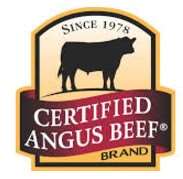By Steve Suther

Is this a good time to expand your cow herd, now that the U.S. beef cattle industry is deep into a fourth year of its rebuilding phase? The consensus has a short answer: no.
They say we’ve already added more than enough cows to produce the volume of beef consumers can afford to buy. Adding to your herd now only aggravates the pending oversupply and sets you up to endure several years of unprofitable calf prices.
You were supposed to respond to those crazy-good prices in 2014 by saving heifers—and thousands did—even though economists figured the cost of the pregnant female by the next spring was more than $2,200 per head. If you bought bred heifers that year, they may have cost $3,000, but what were their calves worth last fall? See? Too many calves already.
I didn’t buy any heifers then, but I’m not buying any blanket advice now.
My answer is a qualified yes, this could be a good time to expand your herd.
Don’t do it if you’re going to buy based on sketchy information or if you just want to raise generic cattle with no plan to advance to above-average production and quality. We already have too many of that kind.
The cattle cycle is based on a long history of generic commodities, but you don’t have to run the kind of cows that maintain that self-fulfilling prophecy. Today, there are many exciting opportunities break free or operate above the commodity cycle, to set new precedents.
If you know enough about the females you add, the bulls they are bred to, and if you have a plan to commence genetic improvement at the first opportunity, this is a much better time to jump in than when the advance guard did in 2014.
Just look at what’s happening in the market this year.
Cattle feeders began with plenty to worry about, but their rush to cut losses and sell lighter finished weights gained the upper hand for a while and caused market analysts to rewrite forecasts.
Staying current on marketing led to carcass weights 30 pounds below last year and deleted 80 million pounds of beef that the market expected. USDA had to revise upward its projected cattle prices for the last half of the year. The lows of last fall and winter were so far below predictions they will probably stand as the overall cycle low.
The average fed steer price last year was $120.86 per hundredweight, compared to the predicted range of $113-$123 for 2018, which could easily stay above the 2016 low.
Look at the game-changer DNA evaluation and selection tools available to shape your herd today, and the rapid genetic improvement since the last cattle cycle’s expansion phase.
You can start with heifers that you know a lot more about, though they will cost a bit more. You can also start with those that win your judging contest but lack specific data, because you can quickly get that from testing and breed two generations of improvement into them by the time the old cattle cycle rolls around to the better days of an uptrend.
Those prices won’t offer many smiles in the next couple of years, but by the time your third calf crop is on the ground, you could be well-positioned to ride the swell upward.
Meanwhile, you can keep building a herd that will capitalize on the premiums paid for high-quality beef, which keep setting records through the ups and downs of the commodity cycle.
Source: Certified Angus Beef